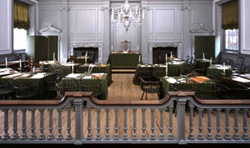The History of Jim Crow
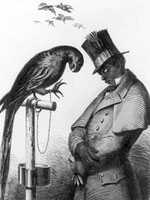
This site for educators was produced as an online companion to The Rise and Fall of Jim Crow, a four-part television series that tells the story of the African-American struggle for freedom during the era of segregation. The site consists of five sections, including television, history, geography, American literature, and teacher resources. "Television" provides teachers with guides to the four sections, from the end of the Civil War to the historic 1954 Brown v. Board of Education of Topeka, Kansas. The history section contains six historical essays (each between 5,000 to 7,000 words), including the introductory essay "Terror to Triumph," and five themed essays focusing on creating, surviving, resisting, escaping, and transcending Jim Crow oppression from the late-19th-century to the Civil Rights movement. Additional shorter essays, most between 600 to 1,300 words, cover topics such as Jackie Robinson and the lynching of Emmett Till. "Geography" features ten interactive maps that give "a multi-layered look at the impact of Jim Crow on the social and political landscape of the nation." The map themes include African-American press, Jim Crow laws inside and outside the south, and most gripping of all, the riots and lynching map that portrays a representative selection of the thousands of recorded acts of violence that occurred across the United States from 1889 to 1918. The American literature section presents interdisciplinary lesson plans designed to illustrate the connection between Jim Crow and 20th-century American writing. This section also contains an American literature book list for middle school, high school, and college-level students, including units on Toni Morrison's Beloved and Alice Walker's The Color Purple.
The final section, teacher resources, offers more than 25 lesson plans, an interactive encyclopedia, an image gallery with historical photographs, and first hand narratives from people who experienced life under Jim Crow. This well organized and wonderfully equipped site is an invaluable resource for history and literature educators.
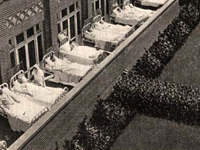
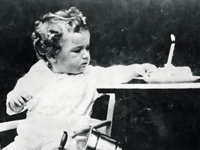
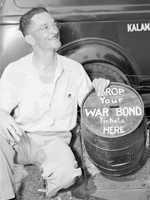
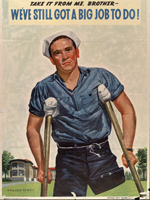
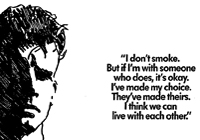
 Roosevelt spoke these words on March 4, 1933, in his First Inaugural Address— which also included his famous phrase "the only thing we have to fear is fear itself." In this speech, FDR first assured the American people that he had faith that the Constitution and current understandings of constitutionally-acceptable presidential power were sufficient to overcome the crisis posed by the Great Depression. He then went on to note that, if necessary for the good of the country, he would ask Congress for executive power equivalent to that granted in wartime.
Roosevelt spoke these words on March 4, 1933, in his First Inaugural Address— which also included his famous phrase "the only thing we have to fear is fear itself." In this speech, FDR first assured the American people that he had faith that the Constitution and current understandings of constitutionally-acceptable presidential power were sufficient to overcome the crisis posed by the Great Depression. He then went on to note that, if necessary for the good of the country, he would ask Congress for executive power equivalent to that granted in wartime. In his book Democracy in America, French thinker, writer, and politician Alexis de Tocqueville (1805-1859), considers the strengths and weakness of the American federal system of government as it was in the early 1830s, when he visited the young country on a 9-month tour. This passage comes from chapter 8 of the book's first volume: "On the Federal Constitution." Subheading "The Federal Constitution, Part V," "Why the Federal System is Not Adapted to All Peoples" looks at the uniqueness of the Constitution and of the expectations it sets out for the people putting it into practice.
In his book Democracy in America, French thinker, writer, and politician Alexis de Tocqueville (1805-1859), considers the strengths and weakness of the American federal system of government as it was in the early 1830s, when he visited the young country on a 9-month tour. This passage comes from chapter 8 of the book's first volume: "On the Federal Constitution." Subheading "The Federal Constitution, Part V," "Why the Federal System is Not Adapted to All Peoples" looks at the uniqueness of the Constitution and of the expectations it sets out for the people putting it into practice.  Fiery abolitionist William Lloyd Garrison (1805-1879) included this condemnation of the Constitution in the December 29, 1832, issue of his abolitionist newspaper The Liberator. The article in which it appeared, titled "On the Constitution and the Union," denounced the Constitution for allowing slavery to exist in the U.S., calling it a document "dripping" "with human blood."
Fiery abolitionist William Lloyd Garrison (1805-1879) included this condemnation of the Constitution in the December 29, 1832, issue of his abolitionist newspaper The Liberator. The article in which it appeared, titled "On the Constitution and the Union," denounced the Constitution for allowing slavery to exist in the U.S., calling it a document "dripping" "with human blood."  Woodrow Wilson included these words in his 1913 book The New Freedom: A Call for the Emancipation of the Generous Energies of a People, which laid out many of the views on which he had campaigned for the presidency. Writing in 1885, in his earlier book Congressional Government, Wilson saw many problems in the United States' established form of government, arguing that the Founders' system of checks and balances obscured responsibility more than it ensured balance. Wilson saw the Constitution as a product of a certain time and place, with questionable relevance to the present day.
Woodrow Wilson included these words in his 1913 book The New Freedom: A Call for the Emancipation of the Generous Energies of a People, which laid out many of the views on which he had campaigned for the presidency. Writing in 1885, in his earlier book Congressional Government, Wilson saw many problems in the United States' established form of government, arguing that the Founders' system of checks and balances obscured responsibility more than it ensured balance. Wilson saw the Constitution as a product of a certain time and place, with questionable relevance to the present day. 